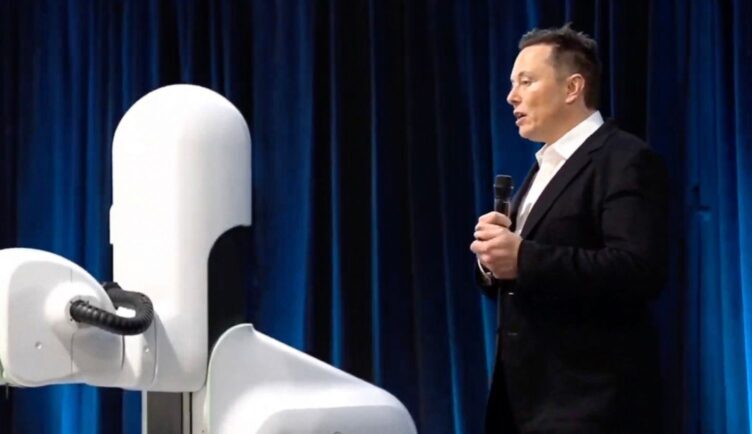
The Future is Here: Neural ink, Led by Elon Musk, Pioneers Brain Chip Implantation in Humans”
rajkotupdates.news : elon musk in 2022 neuralink start to implantation of brain chips in humans: Neuralink, spearheaded by visionary entrepreneur Elon Musk, has brought the future to the present by successfully implanting brain chips in humans. This groundbreaking achievement opens up a world of possibilities for merging technology with the human mind. Neuralink’s brain chip, a marvel of innovation, establishes a direct link between the brain and external devices, enabling seamless interaction and communication.
This transformative technology holds tremendous potential for medical advancements, such as restoring mobility to those with paralysis or enhancing cognitive capabilities. With Neuralink’s pioneering work, the horizon of human potential expands, ushering in an era where the boundaries between humans and machines blur.
Also Read: rajkotupdates.news : microsoft gaming company to buy activision blizzard for rs 5 lakh crore
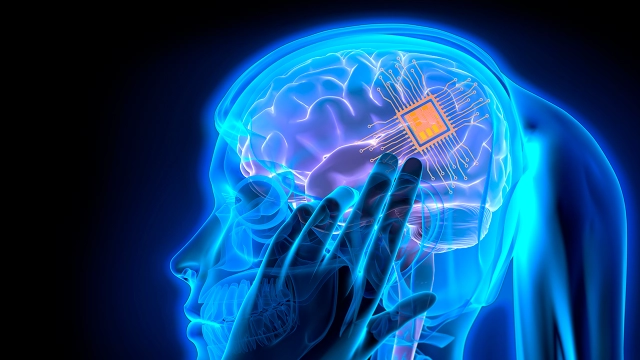
Neural ink was quietly founded under the radar in 2016.
Although Musk has touted the near-term applications of Neuralink, he often links the company up with his fears about artificial intelligence. Musk has said that he thinks humanity will be able to achieve “symbiosis with artificial intelligence” through
Musk told “Artificial Intelligence” podcast host Lex Fridman in 2019 that Neuralink was “intended to address the existential risk associated with digital superintelligence.”
“We will not be able to be smarter than a digital supercomputer, so, therefore, if you cannot beat ’em, join ’em,” Musk added.
Also Read: rajkotupdates.news : microsoft gaming company to buy activision blizzard for rs 5 lakh crore
Musk has made lots of fanciful claims about the enhanced abilities Neuralink could confer. In 2020 Musk said people would “save and replay memories” like in “Black Mirror,” or telepathically summon their car.
Experts have expressed doubts about these claims.
In September 2020, Insider spoke to neuroscientist Prof. Andrew Jackson of the University of Newcastle. He said: “Not to say that that won’t happen, but I think that the underlying neuroscience is much more shaky. We understand much less about how those processes work in the brain, and just because you can predict the position of the pig’s leg when it’s walking on a treadmill, that doesn’t then automatically mean you’ll be able to read thoughts,” said Prof. Andrew Jackson.
Another professor, Andrew Hires, told Insider in August 2020 that Musk’s claims about merging with AI is where he goes off into “aspirational fantasy land.”
Neuralink is developing two bits of equipment.
The first is a chip that would be implanted in a person’s skull, with electrodes fanning out into their brain.
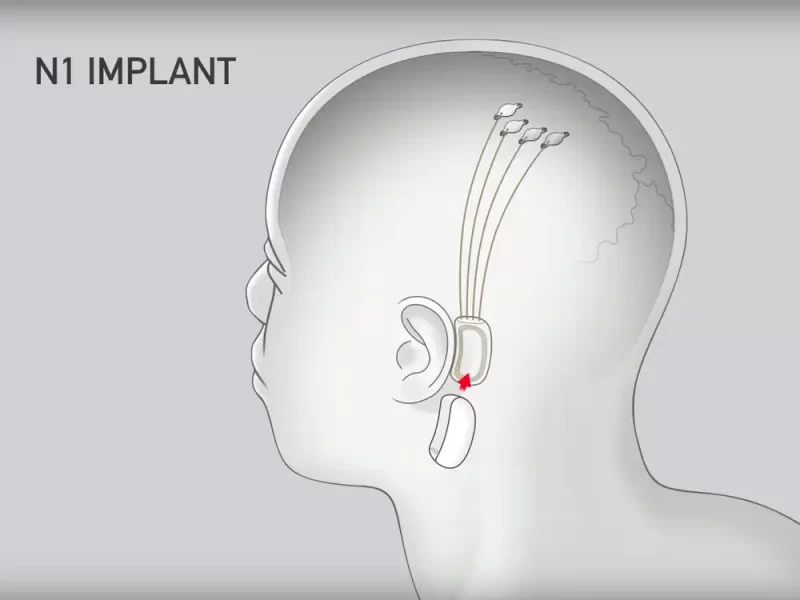
The chip Neuralink is developing is about the size of a coin, and would be embedded in a patients’ skull. From the chip an array of tiny wires, each roughly 20 times thinner than a human hair, fan out into the patient’s brain.
Also Read: rajkotupdates.news : microsoft gaming company to buy activision blizzard for rs 5 lakh crore
The wires are equipped with 1,024 electrodes which are able to both monitor brain activity and, theoretically, electrically stimulate the brain. This data is all transmitted wirelessly via the chip to computers where it can be studied by researchers.
The second is a robot that could automatically implant the chip.
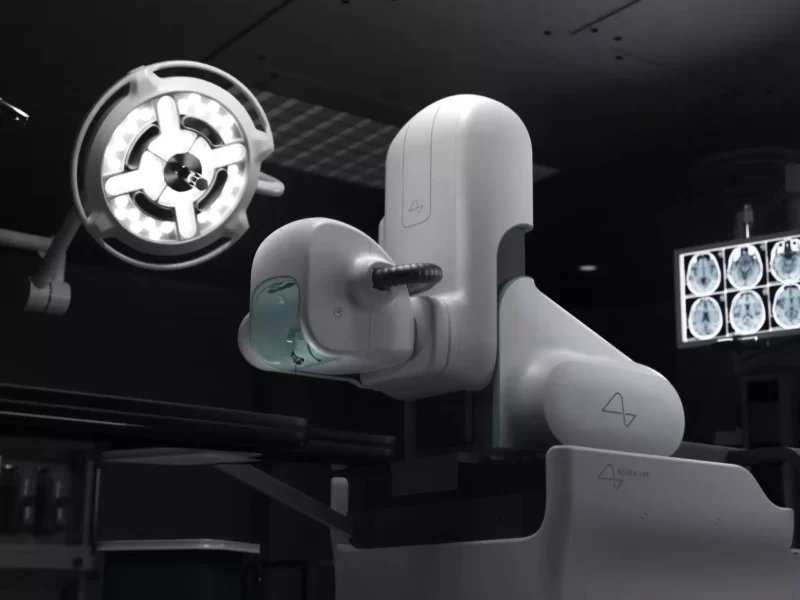
The way the robot would work is it would use a stiff needle punch the flexible wires emanating from a Neuralink chip into a person’s brain, a bit like a sewing machine.
Neuralink released a video showcasing the robot in January 2021.
Musk has claimed the machine could make implanting Neuralink’s electrodes as easy as LASIK eye surgery. While this is a bold claim, neuroscientists previously told Insider in 2019 that the machine has some very promising features.
Also Read: rajkotupdates.news : microsoft gaming company to buy activision blizzard for rs 5 lakh crore
Professor Andrew Hires highlighted a feature which would automatically adjust the needle to compensate for the movement of a patient’s brain, as the brain moves during surgery along with a person’s breathing and heartbeat.
The robot as it currently stands is eight feet tall, and while Neuralink is developing its underlying technology its design was crafted by Woke Studios.
In 2020, the company showed off one of its chips working in a pig named Gertrude during a live demo.
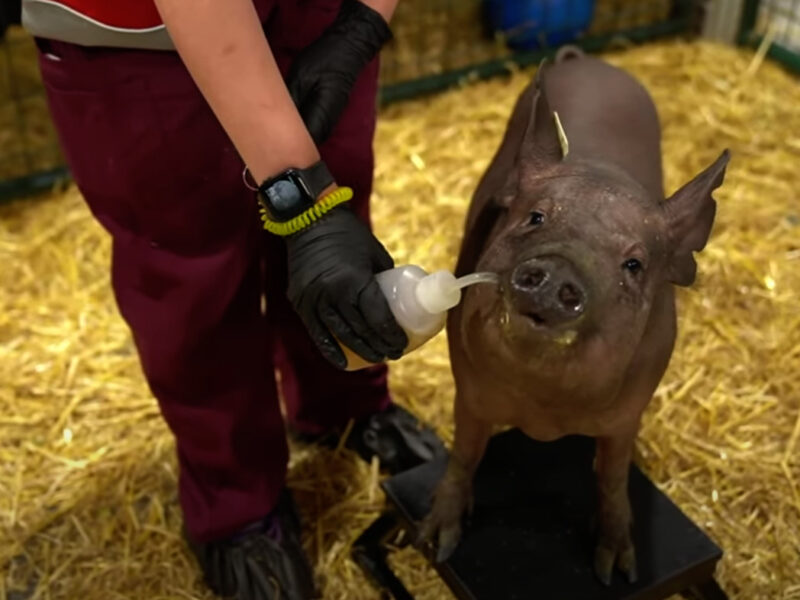
The demonstration was proof of concept, and showed how the chip was able to accurately predict the positioning of Gertrude’s limbs when she was walking on a treadmill, as well as recording neural activity when the pig snuffled about for food. Musk said the pig had been living with the chip embedded in her skull for two months.
“In terms of their technology, 1,024 channels is not that impressive these days, but the electronics to relay them wirelessly is state-of-the-art, and the robotic implantation is nice,” said Professor Andrew Jackson, an expert in neural interfaces at Newcastle University.
“This is solid engineering but mediocre neuroscience,” he said.
Jackson told Insider following the 2020 presentation that the wireless relay from the Neuralink chip could potentially have a big impact on the welfare of animal test subjects in science, as most neural interfaces currently in use on test animals involve wires poking out through the skin.
“Even if the technology doesn’t do anything more than we’re able to do at the moment — in terms of number of channels or whatever — just from a welfare aspect for the animals, I think if you can do experiments with something that doesn’t involve wires coming through the skin, that’s going to improve the welfare of animals,” he said.
Also Read: rajkotupdates.news : microsoft gaming company to buy activision blizzard for rs 5 lakh crore
Although none of the tech Neuralink has showcased so far has been particularly groundbreaking, neuroscientists are impressed with how well it’s been able to bundle up existing technologies.

“All the technology that he showed has been already developed in some way or form, […] Essentially what they’ve done is just package it into a nice little form that then sends data wirelessly,” Dr. Jason Shepherd, an associate professor of neurobiology at the University of Utah, told Insider following the 2020 demonstration.
“If you just watched this presentation, you would think that it’s coming out of nowhere, that Musk is doing this magic, but in reality, he’s really copied and pasted a lot of work from many, many labs that have been working on this,” he added.
Elon Musk has boasted multiple times that the company has put the chip in a monkey, though neuroscientists aren’t that blown away by this.

Elon Musk excitedly announced in Neuralink’s 2019 presentation that the company had successfully implanted its chip into a monkey. “A monkey has been able to control a computer with its brain, just FYI,” he said, which appeared to take Neuralink president Max Hodak by surprise. “I didn’t realize we were running that result today, but there it goes,” said Hodak.
Also Read: rajkotupdates.news : microsoft gaming company to buy activision blizzard for rs 5 lakh crore
Musk re-iterated the claim in February 2021 with a little extra detail.
“We’ve already got a monkey with a wireless implant in their skull, and the tiny wires, who can play video games using his mind,” Musk said during a long and wide-ranging interview on Clubhouse.
Neuroscientists speaking to Insider in 2019 said that while the claim might grab the attention of readers, they did not find it surprising or even particularly impressive.
“The monkey is not surfing the internet. The monkey is probably moving a cursor to move a little ball to try to match a target,”said Professor Andrew Hires, an assistant professor of neurobiology at the University of California.
Implanting primates with neural-brain interfaces that allow them to control objects on screens has been done before, and is expected in any research that aims to one day implant technology into human brains.
Elon Musk has said human testing could start by the end of this year, but he also said that last year
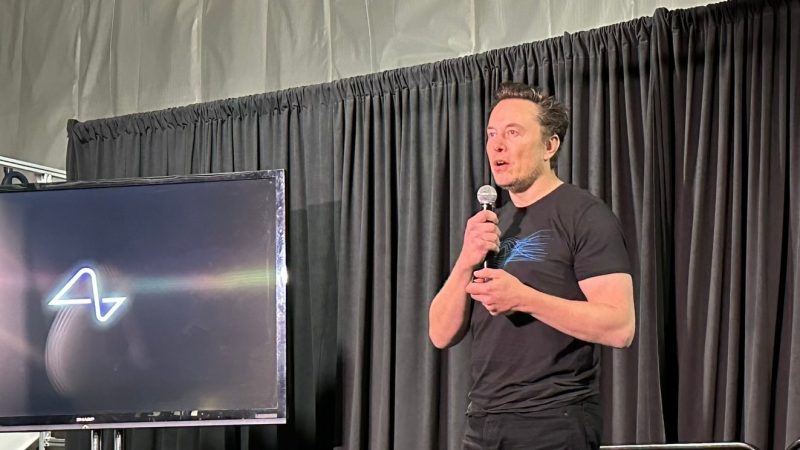
Elon Musk said during an appearance on the “Joe Rogan Experience” podcast in May 2020 that Neuralink could begin testing on human subjects within a year. He made the same claim during an interview on Clubhouse in February 2021.
Previously in 2019 Musk said the company hoped to get a chip into a human patient by the end of 2020.
Experts voiced doubt about this timeline at the time, as part of safety testing a neural interface device involves implanting it in an animal test subject (normally a primate) and leaving it there for an extended amount of time to test its longevity — as any chip would have to stay in a human patient’s brain for a lifetime.
“You can’t accelerate that process. You just have to wait — and see how long the electrodes last. And if the goal is for these to last decades, it’s hard to imagine how you’re going to be able to test this without waiting long periods of time to see how well the devices perform,” Jacob Robinson, a neuroengineer at Rice University, told STAT News in 2019.
Also Read: rajkotupdates.news : microsoft gaming company to buy activision blizzard for rs 5 lakh crore
In the near-term, the uses of a chip in someone’s brain could be to treat neurological disorders like Parkinson’s.
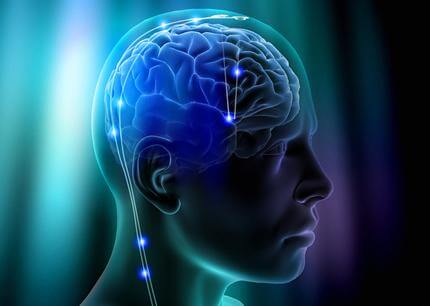
Improved neural interface technology like Neuralink’s could be used to better study and treat severe neurological conditions such as Parkinson’s and Alzheimer’s.
Prof. Andrew Hires told Insider another application could be allowing people to control robotic prostheses with their minds.
“The first application you can imagine is better mental control for a robotic arm for someone who’s paralyzed,” Hires said in a 2019 interview with Insider, saying that the electrodes in a patient’s brain could potentially reproduce the sensation of touch, allowing the patient to exert finer motor control over a prosthetic limb.
Elon Musk also says in the long-term the chip could be used to meld human consciousness with artificial intelligence – though experts are skeptical of this.
Although Musk has touted the near-term applications of Neuralink, he often links the company up with his fears about artificial intelligence. Musk has said that he thinks humanity will be able to achieve “symbiosis with artificial intelligence” through
Musk told “Artificial Intelligence” podcast host Lex Fridman in 2019 that Neuralink was “intended to address the existential risk associated with digital superintelligence.”
“We will not be able to be smarter than a digital supercomputer, so, therefore, if you cannot beat ’em, join ’em,” Musk added.
Also Read: rajkotupdates.news : microsoft gaming company to buy activision blizzard for rs 5 lakh crore
Musk has made lots of fanciful claims about the enhanced abilities Neuralink could confer. In 2020 Musk said people would “save and replay memories” like in “Black Mirror,” or telepathically summon their car.
Experts have expressed doubts about these claims.
“Not to say that that won’t happen, but I think that the underlying neuroscience is much more shaky. We understand much less about how those processes work in the brain, and just because you can predict the position of the pig’s leg when it’s walking on a treadmill, that doesn’t then automatically mean you’ll be able to read thoughts,” said Prof. Andrew Jackson.
In 2019 Prof. Andrew Hires said Musk’s claims about merging with AI is where he goes off into “aspirational fantasy land.”
Musk’s also made dubious claims about its medical applications. At one point he also claimed the technology could “solve autism.”
During an appearance on the “Artificial Intelligence” podcast with Lex Fridman in November 2019, Elon Musk said Neuralink could in future “solve a lot of brain-related diseases,” and named autism and schizophrenia as examples.
Autism is classified as a developmental disorder, not a disease, and the World Health Organization describes schizophrenia as a mental disorder.
Also Read: rajkotupdates.news : microsoft gaming company to buy activision blizzard for rs 5 lakh crore
One neuroscientist told Insider there are big ethical problems with the idea of performing brain surgery for anything other than essential treatment.
Dr. Rylie Green of Imperial College London told Insider in 2019 that the notion of performing brain surgery on a healthy person is deeply troubling.
“To get any of these devices into your brain […] is very, very high-risk surgery,” she said. “People do it because they have severe limitations and there is a potential there to improve their life. Doing it for fun is not a great idea,” she added.

